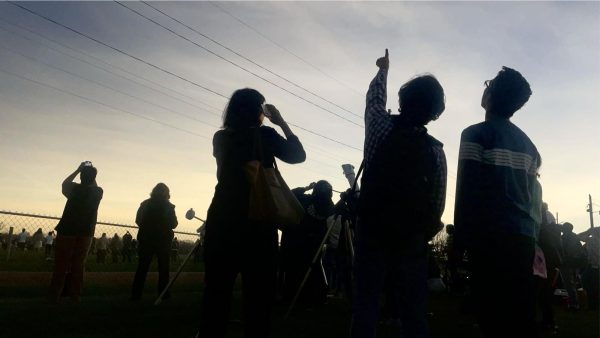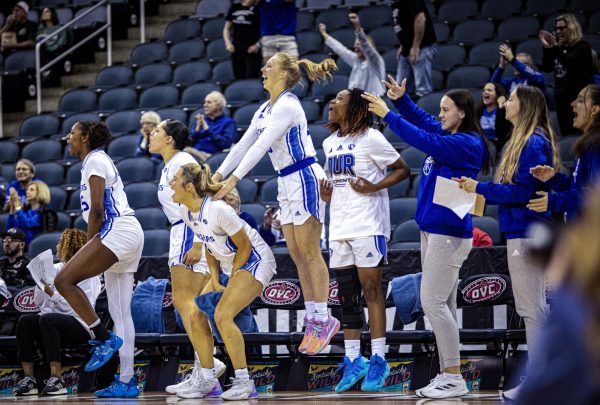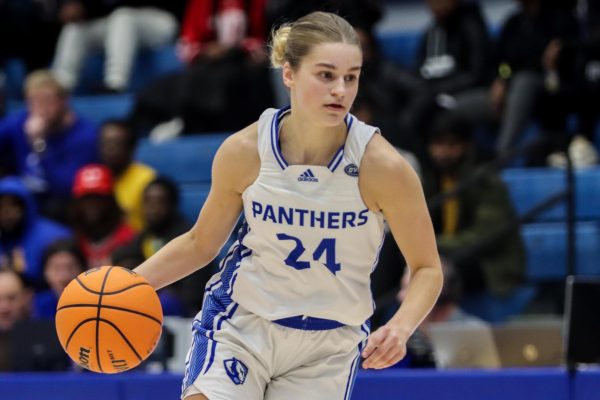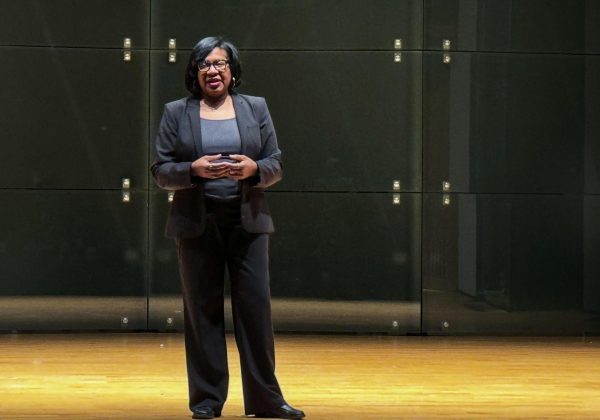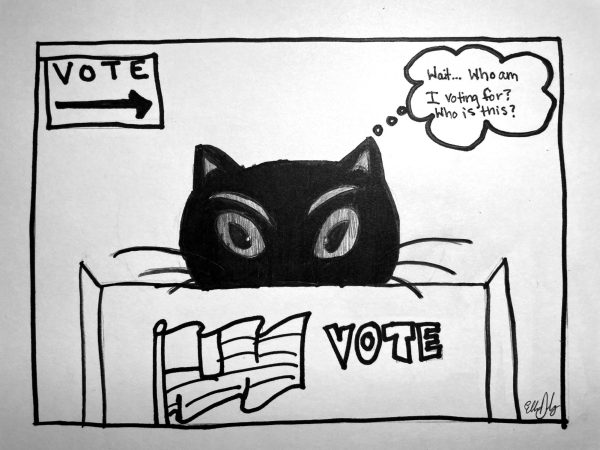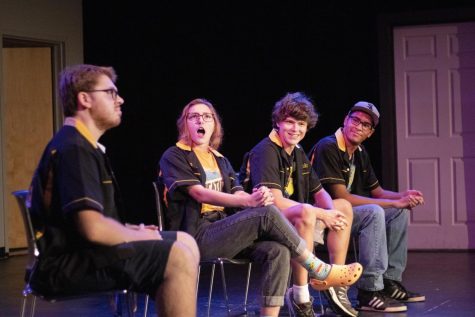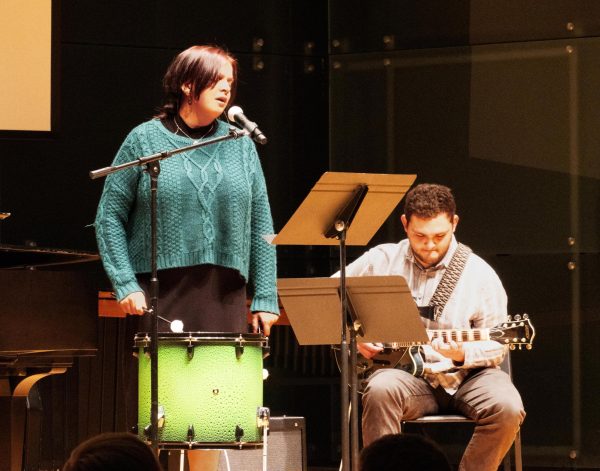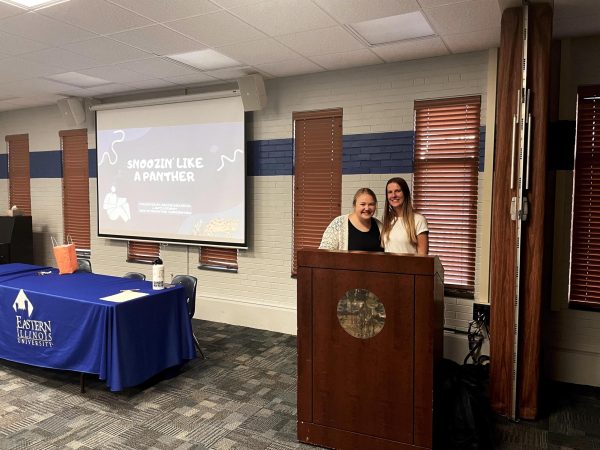Faculty Senate debates renaming Douglas Hall
September 6, 2017
After a teleconference with former Eastern professor Chris Hanlon, the Faculty Senate debated how changing Douglas Hall’s name would affect the community and ideas of how to handle the proposal.
In Fall 2010, Hanlon first brought forth this proposal. Former Eastern President Bill Perry agreed with the University Naming Committee’s decision at the time not to rename the hall.
Now, reflections on the possibility of renaming the hall are being brought to the forefront once more.
Faculty Senate Chair Jemmie Robertson said although the intent in 1951 was to name the halls after the Lincoln-Douglas debate, in no way is that actually on the building.
“The issue is we have incoming freshmen who live in that hall and to be fully sensitive I think we should consider that in the debate,” Robertson said. “The historical context that explains that is in a different building on a plaque that was installed in 2011.”
Faculty Senate member Bailey Young said he would like to propose a resolution of thanks for Hanlon bringing the proposal back before the senate.
“It’s important for the university and the whole community to look at the thing very carefully,” Young said. “I do not have a grief personally for whether the hall continues to be called Douglas Hall or whether the name be changed, but I think that a decision that’s made about it should be made with the whole community involved.”
Young said the debate was one of the most important things to ever happen in Charleston.
“We’re being advised to find better ways of communicating what’s special about Charleston and our community and its cultural and intellectual traditions, I think it’s not something we want to simply obscure,” Young said. “We could approach our partners in the university notably the Staff and Student Senates, present them with the state of the discussion and maybe launch a year-long process of considering it.”
Young said next year will be the 160th anniversary of the debate so having an essay contest on this topic as well as an art competition would be a fitting way to get students more involved in the discussion.
Faculty Senate member Billy Hung said while people are slow to judge Stephen Douglas on his views on slavery because of the time period he was born in, his views actually clash with many of his abolitionist peers’ views on slavery at the time.
“I think we’re not necessarily judging him with a different standard,” Hung said. “We are judging him by his peers values too.”
He said while the original naming of the building may have been intended to simply recognize the one of the Lincoln Douglas debates, which occurred in Charleston, the name actually is about more than a nondescript debate.
“I am personally not sold on the narrative that this is about the debate and therefore not about the commemorating of the viewpoint that Douglass held,” Hung said. “In that context, I agree it is named after a debate, but we shouldn’t put the period there. We should say it’s named after the debate about the legitimacy of slavery. I think that is the full sentence.”
By not having a name that fully explains the historic significance in the name itself, Hung said the name misses the point it is trying to create.
“The essential shortened name creates this confusion of what it is that we are commemorating,” Hung said.
Discussions will continue in the next Faculty Senate meeting on Sept. 19.
Chrissy Miller can be reached at 581-2812 or [email protected]





































